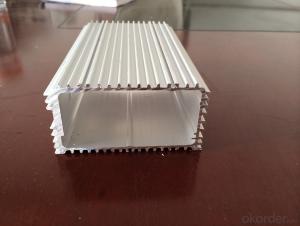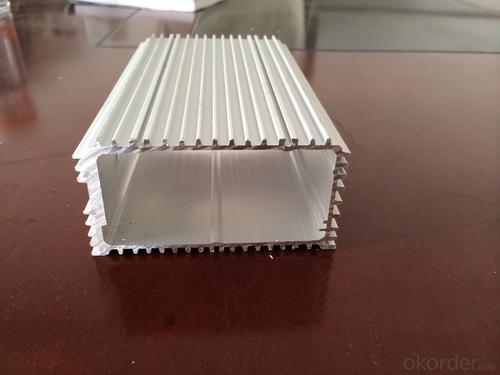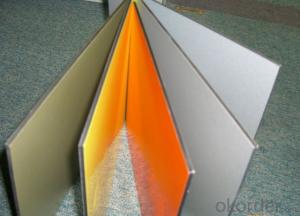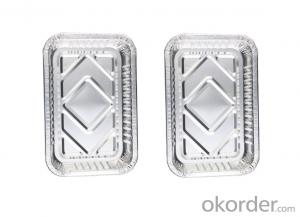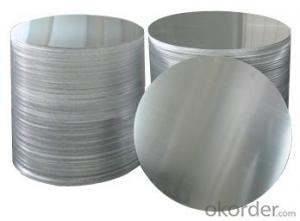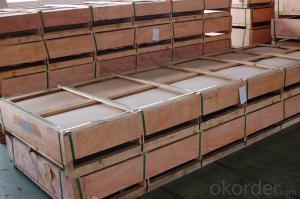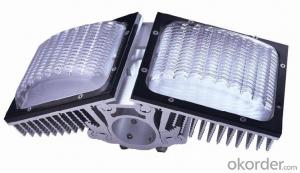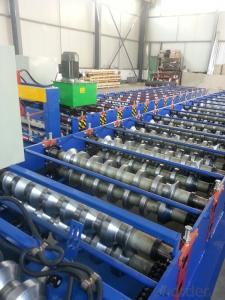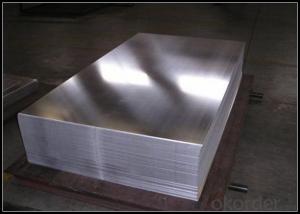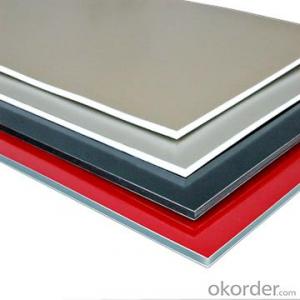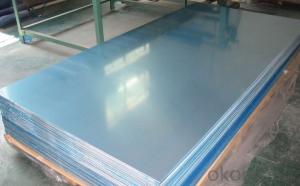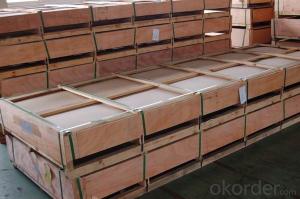4x8 Sheets of Aluminum Profiles ZL-18745 for LED Display Frame
- Loading Port:
- Shanghai
- Payment Terms:
- TT OR LC
- Min Order Qty:
- 20 m.t.
- Supply Capability:
- 2000 m.t./month
OKorder Service Pledge
OKorder Financial Service
You Might Also Like
1.Structure of Auminum Profiles ZL -18745 for Led Display Frame Description:
Anodizing (also spelled anodising, particularly in the UK and Australia) is an electrolytic passivation process used to increase the thickness of the natural oxide layer on the surface of metal parts. Anodized aluminium surfaces, for example, are harder than aluminium but have low to moderate wear resistance that can be improved with increasing thickness or by applying suitable sealing substances.
2.Main Features of the Auminum Profiles ZL -18745 for Led Display Frame:
High corrosion-resistance;
weather-resistance;
heat-resistance;
alkali-resistance and impact-resistance properties.
3.Auminum Profiles ZL -18745 for Led Display Frame Images:
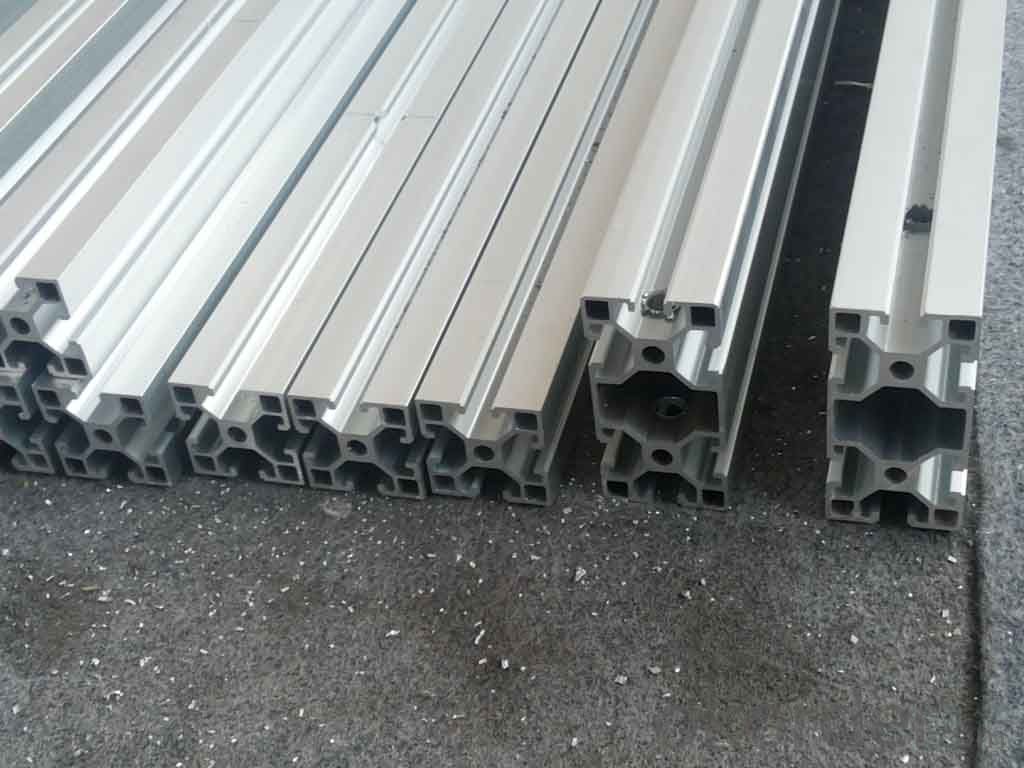
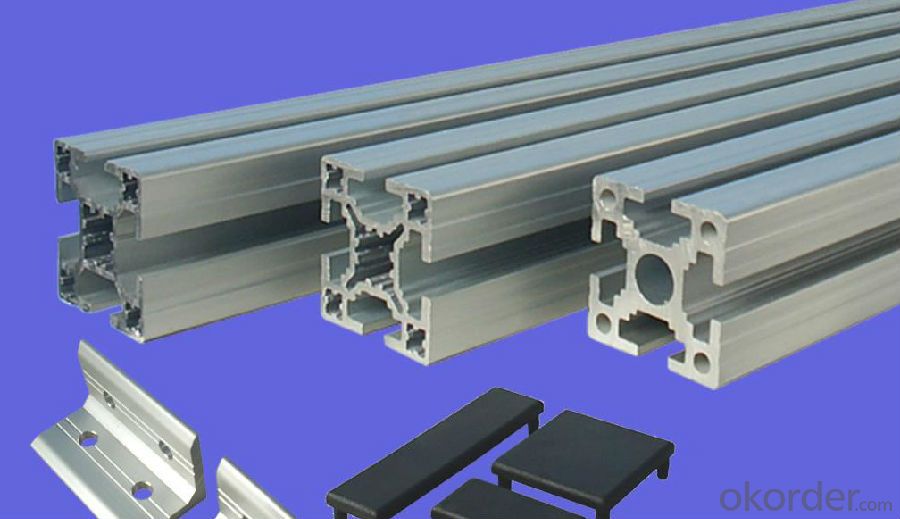
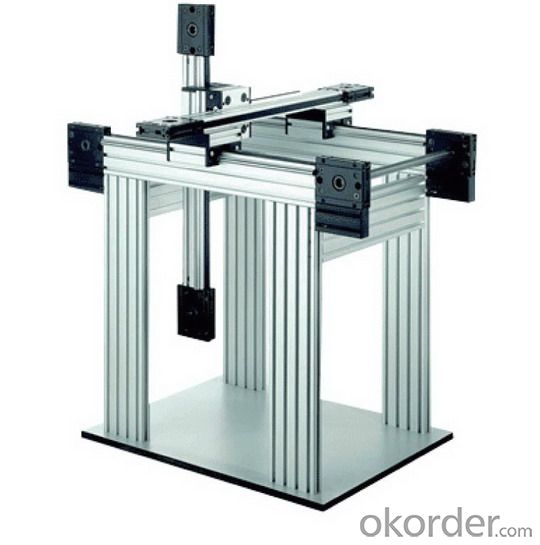
4.Auminum Profiles ZL -18745 for Led Display FrameSpecification:
1. Material: 6063,6061,6060,6005,6005A,etc.
2. Temper: T5 or T6
3. Finish: Mill finish, anodizing, powder coating, electrophoresis, wooden transfer or pvdf/carbon-flouride coated, polishing, brushing, sand blasting
4. Various colors: Silver, bronze, black, gold, blue, grey, champagne, bright, etc.
5. Machining: Cutting, punching, drilling, tapping, milling, bending, welding, CNC etc.
5.FAQ:
① How about your company?
A world class manufacturer & supplier of castings forging in carbon steel and alloy steel,is one of the large-scale professional investment casting production bases in China, consisting of both casting foundry forging and machining factory. Annually more than 8000 tons Precision casting and forging parts are exported to markets in Europe, America and Japan. OEM casting and forging service available according to customer’s requirements.
②How to guarantee the quality of the products?
We have established the international advanced quality management system,every link from raw material to final product we have strict quality test;We resolutely put an end to unqualified products flowing into the market. At the same time, we will provide necessary follow-up service assurance.
- Q: Do 101 aluminum sheets have any specific insulation properties?
- 101 aluminum sheets do not possess any distinct insulation properties, as aluminum is an efficient conductor of both heat and electricity, failing to offer protection against temperature extremes. Nevertheless, these sheets can serve as reflective surfaces, effectively bouncing back heat or light. To achieve insulation, it is necessary to incorporate supplementary materials like foam or fiberglass in conjunction with the aluminum sheets.
- Q: Can the aluminum sheets be used for solar panel frames?
- Yes, aluminum sheets can be used for solar panel frames. Aluminum is a preferred material for solar panel frames due to its lightweight, durable, and corrosion-resistant properties. It provides structural stability and ease of installation for the solar panels.
- Q: Are aluminum sheets resistant to vibration?
- Yes, aluminum sheets are generally resistant to vibration due to their inherent strength and durability. The high stiffness-to-weight ratio of aluminum, along with its ability to dampen vibrations, makes it an ideal material for applications requiring vibration resistance.
- Q: What are the safety considerations when handling and working with aluminum sheets?
- When handling and working with aluminum sheets, it is important to consider a few safety precautions. Firstly, it is crucial to wear appropriate personal protective equipment, such as gloves and safety glasses, to protect against cuts and eye injuries. Secondly, aluminum sheets should be stored and handled in a way that prevents them from falling or causing any crushing hazards. Additionally, it is vital to be aware of the potential for sharp edges on the sheets and take caution to avoid accidental cuts. Lastly, when working with aluminum sheets, it is important to ensure proper ventilation to prevent the inhalation of any aluminum dust or fumes.
- Q: What are the special coatings or treatments available for enhancing the properties of aluminum sheets?
- <p>Yes, there are several special coatings and treatments that can be applied to aluminum sheets to enhance their properties. These include anodizing, which creates a protective oxide layer, powder coating for a durable and colorful finish, and thermal spraying for improved wear resistance. Other treatments involve chemical conversion coatings, such as chromate conversion, which provides corrosion resistance, and various types of plating like electroplating or hot-dip galvanizing for added strength and protection. These treatments can significantly improve the appearance, durability, and performance of aluminum sheets in various applications.</p>
- Q: Consider an aluminum wire of diameter 0.580 mm and length 28.0 m. The resistivity of aluminum at 20.0°C is 2.82 10-8 Ω · m.(a) Find the resistance of this wire at 20.0°C. ___________Ω(b) If a 9.00-V battery is connected across the ends of the wire, find the current in the wire. __________A
- Aluminum has a resistivity of 2.65 x 10^-8. But I will use your figure of 2.82 x 10^-8. R = ρL/A where ρ = resistivity = 2.82 10-8 Ω · m, L = Length = 28 meters, A = Area =( .58mm/2)^2 x pi = 0.26 mm^2, or 2.6 x 10^-7 m^2 R= (2.82 x 10^-8)(28)/2.6 x 10^-7 = 3.03 ohms I=V/R = 9/3.03 = 2.97 amps
- Q: Which explains aluminum's resistance to corrosion? Any aluminum oxide that forms readily falls off the metal and exposes the corrosion-resistant metal. The aluminum oxide that forms adheres to the metal surface. The reduction half-reaction Al3+(aq) + 3e- ---gt; Al(s) occurs readily. The standard reduction potential for the Al3+/Al half-reaction is above the standard reduction potential for the O2/H2O half-reaction.
- the fourth statement.
- Q: What are the different methods of surface cleaning for adhesive bonding of aluminum sheet?
- There are several methods of surface cleaning for adhesive bonding of aluminum sheet. These methods include mechanical cleaning, chemical cleaning, and plasma cleaning. 1. Mechanical Cleaning: This method involves physically removing any contaminants or debris from the surface of the aluminum sheet. It can be done using various techniques such as sanding, grinding, or scrubbing with abrasive materials. Mechanical cleaning is effective in removing loose particles and surface imperfections, but it may not be able to eliminate all types of contaminants. 2. Chemical Cleaning: Chemical cleaning involves the use of specific cleaning agents or solvents to remove contaminants from the aluminum surface. These cleaning agents can dissolve or dislodge dirt, grease, oil, or other organic substances. Chemical cleaning is often combined with mechanical cleaning to ensure thorough surface preparation. It is important to choose a cleaning agent that is compatible with both the adhesive and the aluminum sheet to avoid any adverse reactions. 3. Plasma Cleaning: Plasma cleaning is a more advanced method that uses ionized gases to clean and activate the surface of the aluminum sheet. The plasma generates reactive species that can break down and remove contaminants from the surface, while also creating active sites for better adhesion. Plasma cleaning is effective in removing organic and inorganic contaminants, as well as oxide layers that may hinder bonding. Each method has its advantages and limitations, and the choice of surface cleaning method depends on the specific requirements of the adhesive bonding process. It is important to carefully evaluate the surface condition and the type of contaminants present to determine the most suitable cleaning method. Additionally, proper surface preparation techniques should be followed to ensure successful adhesive bonding of aluminum sheet.
- Q: Can aluminum sheets be used in construction?
- Yes, aluminum sheets can be used in construction. Aluminum is a versatile and lightweight material that possesses several beneficial properties for construction purposes. It is corrosion-resistant, making it suitable for both indoor and outdoor applications. Aluminum sheets also have high strength-to-weight ratio, meaning they offer strength and durability while remaining relatively lightweight, which can be advantageous in construction projects where weight is a concern. Additionally, aluminum is non-toxic and highly recyclable, making it an environmentally friendly choice. These factors, combined with its aesthetic appeal and ease of fabrication, make aluminum sheets a popular choice for various construction applications such as roofing, cladding, wall panels, window frames, and more.
- Q: Are the aluminum sheets suitable for manufacturing heat exchanger tubes?
- Yes, aluminum sheets are suitable for manufacturing heat exchanger tubes. Aluminum has excellent thermal conductivity, corrosion resistance, and is lightweight, making it an ideal material for heat transfer applications.
Send your message to us
4x8 Sheets of Aluminum Profiles ZL-18745 for LED Display Frame
- Loading Port:
- Shanghai
- Payment Terms:
- TT OR LC
- Min Order Qty:
- 20 m.t.
- Supply Capability:
- 2000 m.t./month
OKorder Service Pledge
OKorder Financial Service
Similar products
Hot products
Hot Searches
Related keywords
